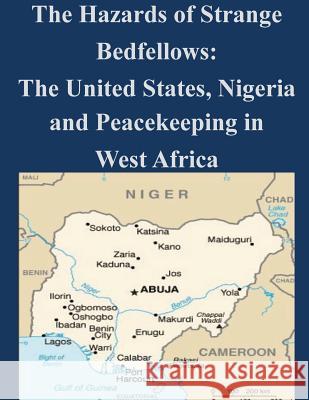The Hazards of Strange Bedfellows - The United States, Nigeria, and Peacekeeping in West Africa » książka
The Hazards of Strange Bedfellows - The United States, Nigeria, and Peacekeeping in West Africa
ISBN-13: 9781500819675 / Angielski / Miękka / 2014 / 36 str.
Instability in West Africa presents U.S. decision-makers with a conundrum. America's domestic imperative to avoid new entangling commitments abroad is tempered by the CNN effect - the need to "do something" to alleviate the plight of those affected by armed conflict. Responding to these contradictory pressures, successive U.S. administrations have advocated reliance on Africans to maintain peace and security on the continent. This approach, while consistent with Chapter VIII of the United Nations charter, has practical limitations. This book is focused on U.S. support for Nigerian military intervention in West Africa, using events in Liberia and Sierra Leone as case studies. The wisdom of working through a regional hegemon to resolve conflict in third countries is examined, as is the utility of peacekeeping itself. The body of this work is divided into four main parts, dealing with Liberia, Sierra Leone, U.N. peacekeeping, and U.S. foreign policy. In Liberia's corner of West Africa, demographics and globalization have both contributed to a contagious anarchy. At its heart, however, the spreading instability in the region is not caused by these phenomena, nor is it spontaneous. State sponsorship of insurrection in neighboring states is at the root of the case studies reviewed below. Inappropriate international responses to this combination of invasion and rebellion have only compounded the problems faced.
Zawartość książki może nie spełniać oczekiwań – reklamacje nie obejmują treści, która mogła nie być redakcyjnie ani merytorycznie opracowana.











